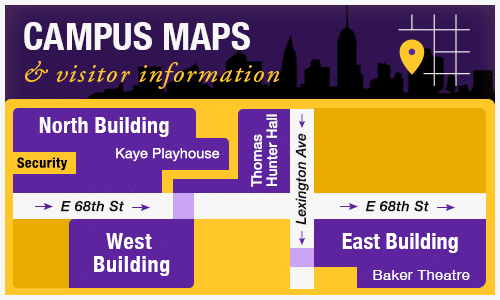

Continuing Education Programs& Professional Development
Continuing Education Programs& Professional Development
Legal Studies Certificates in NYC
Certificate in Legal Studies
Whether you are interested in a career as a Paralegal or are preparing to apply for Law School, our Certificate in Legal Studies helps you achieve your goals. The program consists of 5 required courses. Paralegals can assist attorneys and help provide top legal services to clients. The certificate provides a solid foundation in numerous fields, and typically find employment in a number of fields.
Program Information
- Duration of the Program: The program consists of 5 required courses.
- Tuition: $2,800 plus one-time $25 registration fee
- Payment Plan: Down payment of $1,520 + 3 payments of $435
- Note: If you would like take additional courses, you can do so and pay for each additional elective $550; if you complete two or more electives, you will get an advanced certificate.
- Attend the Open House
- Brochure (PDF)
Professional Development Courses in Legal Studies
Courses and Program Details

Introduction to Law (LSINTLAW)
Provides students with an overview of law covering legal history, foundations of legal authority, nature of a lawsuit, concept of jurisdiction, legal terminology and basic concepts, structure of the court system, a brief survey of the substantive law including civil procedure, torts, contracts, corporations, criminal law and real property.
Drafting Legal Instruments (LSDRALEG)
Teaches practical skills for assisting lawyers in drafting basic legal documents, including affidavits, complaints, motions, wills and contracts. Students learn the basic components of these documents, where to find and how to use standard legal forms, and fundamental principles of effective legal writing.
Contracts (LSCONTRA)
Students study contract formation, defenses to the existence of contracts, the different kinds of contracts, contracts for the sale of land (real property) and the Uniform Commercial Code which involves contracts for the sale of goods in the United States.
Textbook
Business Law: A Hands-On Approach, 1st Edition by Neal R. Bevans, Western Piedmont Community College, 2006. ISBN-10: 1401833535, ISBN-13: 9781401833534.
Legal Research and Writing (LSLEGRES)
This course teaches students the fundamentals of legal research, kinds of law books, casebooks and treatises, official vs unofficial reporters, hands-on computer and library research, how to Shepardize cases and the basics of writing a legal memo.


Litigation (LSLITIGA)
This course focuses on causes of action, statutes of limitation, pleadings, provisional remedies, discovery, EBTs, motions to dismiss, summary judgment, settlement conferences, evidence, judicial discretion, judgments, enforcement and appeals.
Criminal Law (LSCRILAW)
This course covers selected topics in substantive criminal law: principles underlying the definition of crime such as the requirements of actus reus and mens rea and general doctrines such as ignorance of fact and ignorance of law, causation, attempt, complicity and conspiracy. Principles of justification and excuse are examined with particular attention to the doctrines of necessity, intoxication, insanity, diminished capacity and automatism. The substantive offense of homicide is extensively reviewed, and from time to time other offenses such as theft. Throughout, emphasis is placed on the basic theory of the criminal law and the relationship between doctrines and the various justifications for imposition of punishment.
Landlord & Tenant (LSLANTEN)
This course is taught by a long-time New York City judge in the Housing Part of Civil Court of the City of New York. He discusses his own experience in the areas of landlord responsibility, the eviction process, problems faced by tenants, rent control, stabilization, open market issues and general NYC Housing Law.
Constitutional Law (LSCONLAW)
The United States Constitution is the foundation of the United States government and its legal system and the supreme law of the land. It sets up and delineates each branch of the federal government and sets forth the basic rights citizens have with respect to their government. This course introduces students to the United States Constitution, its Articles, the Bill of Rights and its various amendments. It addresses the powers and responsibilities of the Legislative, Executive and Judicial branches of government and the relationship of the Federal government to the States. The course will focus on the provisions of the Constitution and how courts have interpreted its provisions to resolve disputes and decide cases.
Torts (LSTORT)
This course focuses on causes of action, statutes of limitation, pleadings, provisional remedies, discovery, EBTs, motions to dismiss, summary judgment, settlement conferences, evidence, judicial discretion, judgments, enforcement and appeals.
Corporate Business Law (LSCORBUS)
Students learn the difference between corporations and other forms of business entities, how a corporation is formed, what the legal duties are for shareholders and corporate officers, close v. pubic corporations, what can be done to control corporate wrongdoing, lawsuits against corporate entities.
Business Law for Small Business Owners (LSBLSO)
This course is designed to familiarize students with the law as it affects business personnel and social activities. Topics include basic legal principles and procedures such as the origin and kinds of law, the law of contracts, sales, commercial paper, and of agency and employment. Students gain an understanding of the rights and duties of individuals and businesses.
Criminal Procedure (LSCRIPRO)
The objectives of this course are to (1) learn the law of criminal procedure through an understanding of the principles of law by examining real problems, challenges and cases, (2) gain knowledge of constitutional rights in the context of criminal law, (3) focus on the concept of reasonableness of restraints on those rights, (4) gain an understanding of the public policy considerations underlying the substantive criminal law and the manner in which such policies are effectuated through criminal procedural requirements, and (5) study specific procedural law issue/requirements, including right to counsel, exclusionary rule; search warrant; permissible warrantless searches; stop and frisk, entrapment, wiretapping, confessions, lineups, jury selection, voir dire, negotiated pleas and post-conviction relief.
Business Law Corporation (LSBUSLAW)
The Business Law seminar presents an overview of the primary business entities: corporations, LLCs and partnerships, what they are, how they are formed, and the legal ramifications of each. We will also discuss business litigation such as “piercing the corporate veil,” unfair competition, trademarks and trade secrets, with an introduction to debtor/creditor issues.
Evidence (LSEVIDEN)
This course examines the rules governing the admission, exclusion and presentation of evidence in judicial proceedings. Topics to be covered in this course include relevancy; authentication; the ‘Best Evidence’ doctrine; categorical rules of exclusion; character and habit evidence; competency of witnesses; examination and impeachment of witnesses; opinion and expert testimony; presentation of evidence; privilege; the hearsay rule and its exceptions; presumptions and burdens of proof; and the scope of judicial notice.
Federal Practice (LSFEDPRA)
There are two distinct legal systems which are going on at the same time in the United States — the state judicial system and the federal system. Federal courts are found not by state but by “circuit,” and federal law differs from state law except when federal courts are required to apply state law. The entire realm of federal practice will be explored by a long-time practitioner in the federal courts and popular Hunter professor.

